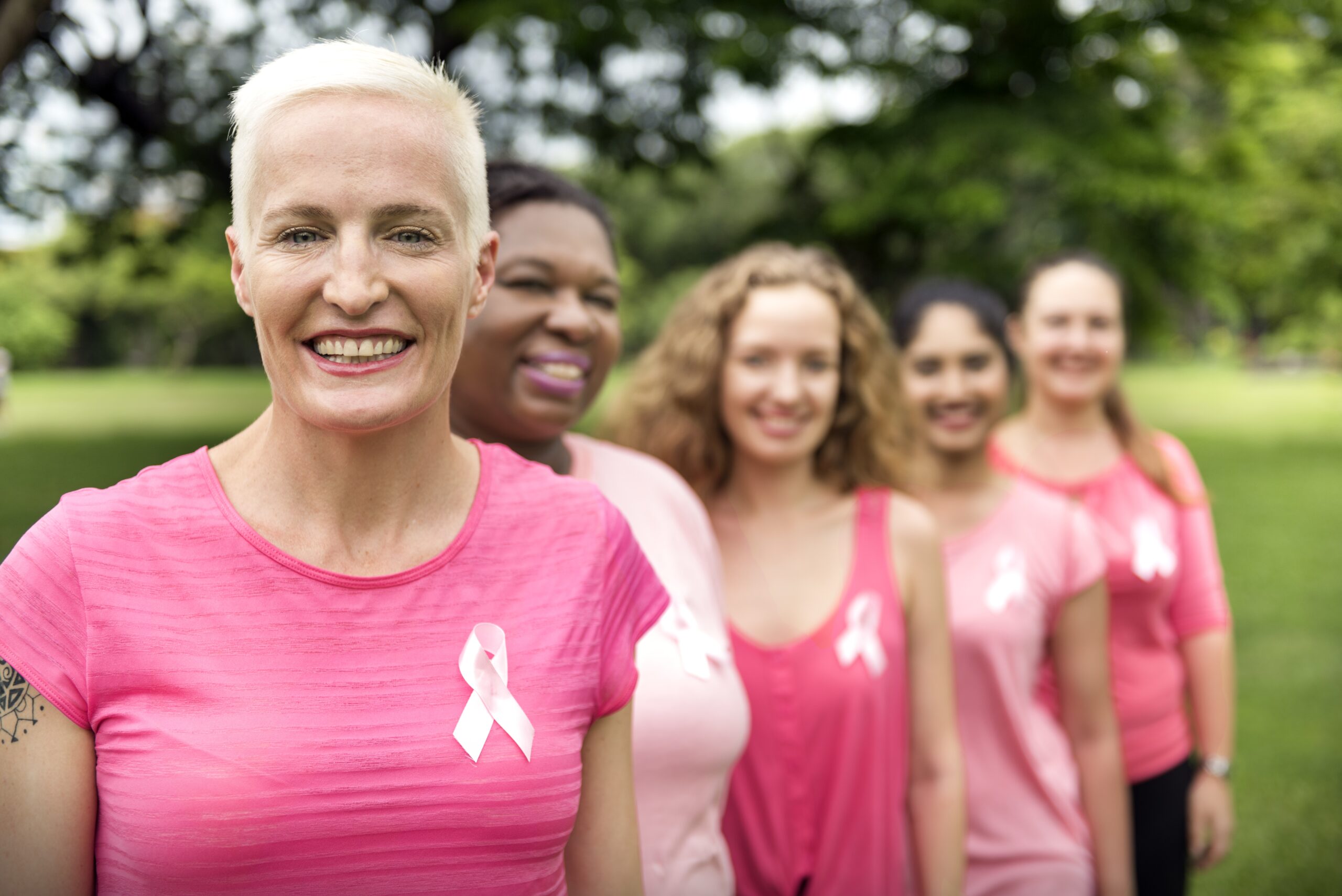
As fall settles in, we have found ourselves joining the conversation around Breast Cancer Awareness again. Last year we published a blog, ‘Let’s Talk Breast Cancer and Genetics,’ educating members on breast cancer and its connection to genetics. This year we’re aiming to educate our readers on the important role that early detection plays in a breast cancer diagnosis.
Breast cancer is one of the most common cancers and one that hits close to home for many of us. As someone who has experienced the devasting news of learning a family member is diagnosed with breast cancer, it can be heart wrenching. Usually by the time a woman finds out that she has been diagnosed, the cancer has progressed enough that she’ll need chemotherapy. Although chemotherapy saves lives, it can be exhausting. The hair loss, the fatigue, the endless appointments, as well as the pain can be one of the hardest things for a breast cancer patient and their families to experience.
When my mom was diagnosed with breast cancer, it felt like the ground beneath our feet disappeared. By the time she found out, the cancer had already progressed, and she had to undergo chemotherapy. Chemotherapy is not only physically exhausting, but emotionally draining for both the patient and their family. It’s an uphill battle that no one should have to face alone. Chemo saved her life, but it also took a toll on her body—one that could have been avoided if the cancer had been detected earlier. Her experience taught me a vital lesson.
On the other hand, my aunt’s story had a very different ending, all thanks to early detection. She had always been careful about her health, scheduling annual mammograms and doing self-exams regularly, especially since cancer runs in our family. However, one year, her mammogram revealed an abnormality. Her cancer was detected at a stage where it hadn’t spread, and she was able to avoid chemotherapy altogether. She underwent a mastectomy and radiation but was spared the harshness of chemo. It’s incredible to think that two women in my family faced the same disease but had such different experiences. My aunt’s journey was far less painful and disruptive to her life, simply because she caught the cancer early.
Breast cancer is the most common type of cancer, according to the National Cancer Institute (NCI). NCI also stated that there are 313,510 new cases expected in the United States in 2024. Although the death rate has decreased steadily since 1989, 1 in 40 (about 2.5%) women will die from breast cancer. However, did you know that with early detection the 5-year survival rate is 99%? Yes, according to the Centers for Disease Control and Prevention, that’s correct.
Early detection is a powerful tool in the fight against breast cancer. It can drastically improve outcomes. The US Preventive Services Task Force recommends that women who are 40 to 74 years old and are at average risk for breast cancer get a mammogram every 2 years.
Mammograms, self-exams, and regular checkups can help detect cancer in its earliest stages when treatment options are less invasive and more effective. When caught early, survival rates increase significantly, and patients can avoid more aggressive treatments like chemotherapy. Seeing how early detection allowed my aunt to avoid the hardships my mom had to endure, it has made me an advocate for regular screenings and awareness. Women should see their healthcare provider to get a breast cancer screening starting at age 40, or earlier if you have a family history of breast cancer. Knowing your family history and having open conversations with your healthcare provider about when to begin screenings can make all the difference.
If you or a loved one is due for a screening, take the first step today by scheduling an appointment with your healthcare provider. Don’t wait. In addition, you can perform regular self-exams. Taking proactive steps to detect breast cancer early could save your life!
How AFSPA Can Help
Routine mammograms are covered at 100% for members enrolled in the Foreign Service Benefit Plan (FSBP) if they visit an in-network provider in the U.S. or any provider overseas. Routine mammograms are covered at 70% when visiting a U.S. out-of-network provider. FSBP members who receive a breast cancer screening can earn a $25 wellness reward through our wellness rewards program.
FSBP’s Cancer Support Program
FSBP‘s Cancer Support Program is designed to provide education and support to members. If you would like to contact the Plan for more information about this Program, please call 800-593-2354. We are available to assist you Monday-Friday from 6:00 a.m. – 5:00 p.m. Mountain Standard Time (MST)
TherapEase Cuisine®
TherapEase Cuisine is an oncology nutritional service offering reliable information and scientifically based nutritional solutions to those diagnosed with cancer. The TherapEase Cuisine exclusive online service is offered to patients who use Accredo®, a specialty pharmacy. Its personalized support helps answer the question, “What should I be eating?”
Learn more at https://www.therapeasecuisine.com/
Care Management Programs
FSBP offers additional services under our Care Management (CM) Programs that assist you with your care coordination for your acute or chronic conditions at no additional cost. These programs provide education, clinical support and access to digital support and well-being tools to help you better manage your health.
2nd.MD
As part of your FSBP benefits, you can get an expert second opinion from a leading specialist at no additional cost to you. Connect directly with experts by video from the comfort of home. Ask questions, get answers and feel empowered to make the best healthcare decisions.
The medical experts and dedicated health advisors at 2nd.MD will help FSBP members navigate the complexities of the health care system. Their goal is to provide better medical intelligence, preferred access to top-specialists and improved health outcomes. Activate your account and request a consult by using the options below:
References